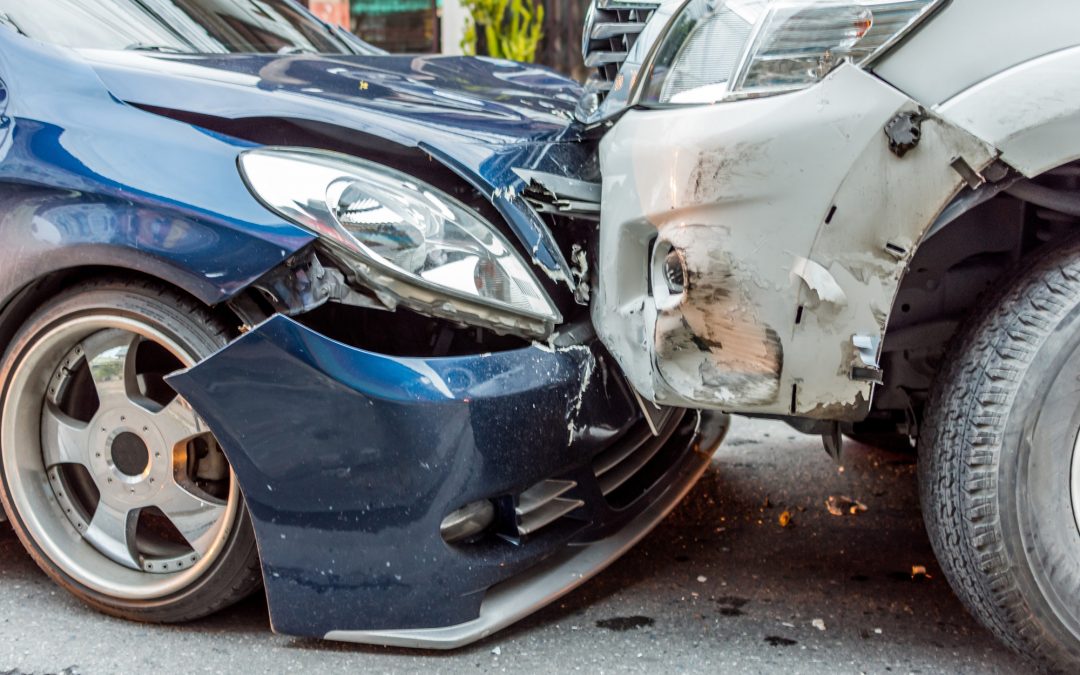Did you know that the average mileage a traveling salesperson puts on their company car each year is 12,000 miles? Some “road warrior” drivers can put upwards of 25,000 miles on their fleet car per year. Most people don’t even put that much on their personal car.
All that mileage doesn’t just wear out your tires. That much driving in your fleet vehicle significantly increases your risk of getting into a motor vehicle accident. And if you’re in charge of a fleet of drivers, that risk multiplies very quickly.
The annual rate of car accidents for fleet drivers is about 20 percent. To stay safe on the roads, it is critical that you know how to anticipate, identify, and avoid road hazards to prevent accidents.
Here are defensive driving and accident tips to boost your fleet driver safety.
How Often Do Fleet Drivers Get Into Car Accidents?
As previously mentioned, commercial fleet drivers are much more likely to get into a car accident simply because they drive so many more miles than the average driver. For inexperienced drivers, this rate is much higher.
What Do You Do if You Get into a Car Accident in Your Fleet Car?
If you ever get into a car accident while driving your fleet car, there are several important things you need to know and do right away. Here is a quick checklist and accident advice for fleet drivers.
Check for injuries and call 911
First, check for any injuries. Call 911 immediately if you are able to and request medical attention if you need it.
Make sure you are in a safe area
Make sure you are in a safe area. If your car is drivable, drive to a safe nearby location. If the car is totaled or is not in driving condition, get yourself out of the roadway as quickly as possible.
You want to stay at the scene, or as close to the scene as possible until law enforcement arrives. This will ensure that the accident is properly documented and accounted for legally. This will also help to officially document the event for you in case you sustain any injuries from the accident.
Call your work office
After you call 911, be sure to call your office and make them aware that you have been in an accident with a fleet car. Calling as soon as you are able to will help document the event on a professional side and let them know what is going on.
Give an account of what happened to law enforcement
Next up, you want to provide your statement to law enforcement. An important thing to note here is that you do not want to be assigning fault or taking the blame for why the accident happened.
Simply provide factual statements about what happened and how the accident occurred. Try to keep straight to the facts here and whatever you do, do not embellish.
How To Practice Fleet Driver Safety
If you have gotten into a fleet car accident, it’s natural to want to do everything in your power to not get into another one. There are some practical fleet safety tips you should keep in your back pocket next time you are out on the road.
First, slow down! Do not drive at high rates of speed. You are much more able to keep your car under control if you keep it at the speed limit. Most car accidents happen when drivers are speeding or driving recklessly.
Be careful about blind spots. Always double-check and don’t make any sudden movements if you are not 100 percent sure the roadway is clear to make a move.
Avoid distractions like cell phones, smartwatches, and activities that take attention away from the road, like eating or drinking.
Maximize Your Driver Safety With A Defensive Driving Course
Another great safety tip is to enroll in a defensive driving course like DriveSafe Online. Because after all, you can be following all the rules of the road, but another driver could be recklessly speeding and on their cell phone as they hit your car.
Defensive driving courses teach you how to anticipate, identify, and avoid road hazards to prevent accidents. The best accidents are the ones that don’t happen in the first place.
Defensive driving courses are one of the best ways to get confidence back following an accident, or to refresh your driving skills to make sure you stay sharp while out on the road.
Plus, another great benefit of defensive driving courses is that completing one can lower your car insurance premiums. And if you manage a company with several employees who drive during their jobs, even if those trips are short and sporadic, the money you could save on fleet insurance will put a smile on the face on any financial manager.
Looking For More Defensive Driving And Accident Tips?
Getting into an accident can be a scary and stressful experience. Take into account that the accident took place in a fleet car and you have yourself a whole new set of worries.
There is no substitute for being prepared. Using a defensive driving course to train fleet drivers how to be safe on the roads and to protect the company’s investment in vehicles and employees is simply smart business.
If you are looking to optimize your driving skills as a fleet driver, be sure to enroll in a defensive driving course. Contact the DriveSafe Online team learn how our courses can fit your fleet needs.

Patrick M. is Editorial Director for the always expanding DriveSafe Online library of courses. With over two decades of experience developing award-winning training, he now focuses on innovating online driver safety training. Pulling from his background in journalism, he steers the wheel behind the creation of top-tier content that promotes a better journey—whether on the digital highway of learning or the real roads we travel every day.
